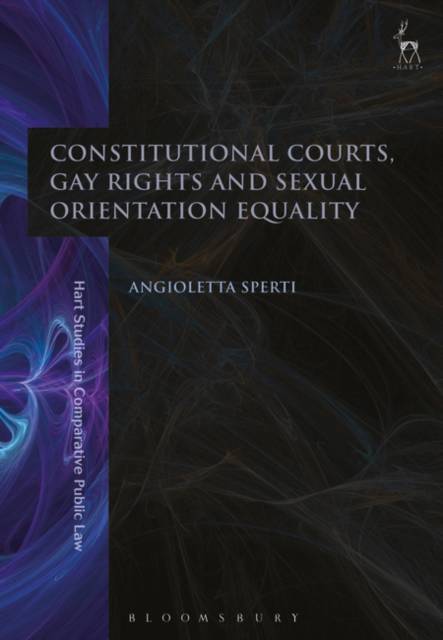
Bedankt voor het vertrouwen het afgelopen jaar! Om jou te bedanken bieden we GRATIS verzending (in België) aan op alles gedurende de hele maand januari.
- Afhalen na 1 uur in een winkel met voorraad
- In januari gratis thuislevering in België
- Ruim aanbod met 7 miljoen producten
Bedankt voor het vertrouwen het afgelopen jaar! Om jou te bedanken bieden we GRATIS verzending (in België) aan op alles gedurende de hele maand januari.
- Afhalen na 1 uur in een winkel met voorraad
- In januari gratis thuislevering in België
- Ruim aanbod met 7 miljoen producten
Zoeken
Constitutional Courts, Gay Rights and Sexual Orientation Equality
Angioletta Sperti
€ 93,45
+ 186 punten
Uitvoering
Omschrijving
In the last fifteen years constitutional issues regarding the rights of gays, lesbians and same-sex couples have emerged on a global scale. The pace of recognition of their fundamental rights, both at judicial and legislative level, has dramatically increased across different jurisdictions, reflecting a growing consensus toward sexual orientation equality.
This book considers a wide-range of decisions by constitutional and international courts, from the decriminalization of sexual acts to the recognition of same-sex marriage and parental rights for same-sex couples. It discusses analogies and differences in judicial arguments and rationales in such cases, focusing in particular on human dignity, privacy, liberty, equality and non-discrimination.
It argues that courts operate as major exporters of models and principles and that judicial cross-fertilization also helps courts in increasing the acceptability of gays' and lesbians' rights in public opinions and politics. Courts discuss changes in the social perception of marriage and family at national and international levels and at the same time confirm and reinforce them, forging the legal debate over sexual orientation equality. Furthermore, by promoting the political reception of the achievements of foreign gay movements in their own jurisdictions, courts play an essential role in breaking the political stalemate.
This book considers a wide-range of decisions by constitutional and international courts, from the decriminalization of sexual acts to the recognition of same-sex marriage and parental rights for same-sex couples. It discusses analogies and differences in judicial arguments and rationales in such cases, focusing in particular on human dignity, privacy, liberty, equality and non-discrimination.
It argues that courts operate as major exporters of models and principles and that judicial cross-fertilization also helps courts in increasing the acceptability of gays' and lesbians' rights in public opinions and politics. Courts discuss changes in the social perception of marriage and family at national and international levels and at the same time confirm and reinforce them, forging the legal debate over sexual orientation equality. Furthermore, by promoting the political reception of the achievements of foreign gay movements in their own jurisdictions, courts play an essential role in breaking the political stalemate.
Specificaties
Betrokkenen
- Auteur(s):
- Uitgeverij:
Inhoud
- Aantal bladzijden:
- 256
- Taal:
- Engels
- Reeks:
Eigenschappen
- Productcode (EAN):
- 9781509932115
- Verschijningsdatum:
- 19/09/2019
- Uitvoering:
- Paperback
- Formaat:
- Trade paperback (VS)
- Afmetingen:
- 156 mm x 234 mm
- Gewicht:
- 353 g

Alleen bij Standaard Boekhandel
+ 186 punten op je klantenkaart van Standaard Boekhandel
Beoordelingen
We publiceren alleen reviews die voldoen aan de voorwaarden voor reviews. Bekijk onze voorwaarden voor reviews.









